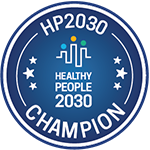Rabies is a deadly disease caused by a virus that attacks the nervous system. The virus is secreted in saliva and is generally transmitted by the bite of an infected animal. Less commonly, rabies can be transmitted when saliva from a rabid animal comes in contact with an open cut on the skin or the eyes, nose or mouth of a person or animal. Prompt post exposure treatment is essential because once symptoms become apparent, rabies is nearly 100% fatal.
Animals infected with rabies may show a variety of signs, including fearfulness, aggression, excessive drooling, difficulty swallowing, staggering and seizures. Rabid wild animals may only display unusual behaviors: for example an animal that is usually only seen at night may be seen wandering at daytime. Only mammals can get rabies; birds, fish, reptiles, and amphibians cannot. Skunks, bats, foxes, raccoons, dogs, cats, and some farm animals are most likely to contract rabies. Rabbits, squirrels, rat, mice, and rodent pets seldom get rabies.
In recent years cats have become the most common domestic animal infected with rabies. Bats still are the most problematic of the carriers because their teeth are so tiny that bites often go undetected by the victim. If bats are discovered inside the living quarters, for example when the residents are sleeping, post exposure prophylaxis is always recommended if the bat cannot be captured for testing.
Rabies vaccinations and animal control programs, along with prompt evaluation and treatment for people who have been bitten by a potentially rabid animal, have dramatically reduced the number of human rabies cases in the United States.
What can I do to help control rabies and protect my family?
- Please remind your children to NEVER pet stray animals
- Make sure to have your family pets vaccinated yearly
- Keep your pets on a leash and not roaming free
- Do not leave exposed garbage or pet food outside, as it may attract wild or stray animals
- Do not feed feral cats or stray animals
- Observe all animals in the wild from a distance
- Report any stray animal acting strangely to your local animal control
- Bat proof your home and other living structures
- If you think you have come into contact with a rabid animal or have any questions regarding rabies, please contact the Health Department at 770-339-4260
For more information check out World Rabies Day on the web!












